
James Tylee from CyberFM
By James Tylee
CyberFM is the only Radio Network that pays you to listen.

James Tylee from CyberFMAug 11, 2022

Jonny Fry / James Tylee of Digital Bytes by Team Blockchain on Cyber.FM featuring James Kaufmann, partner at Howard Kennedy
Welcome to this week’s Digital Bytes. This week we have analysis on the following topics:
Blockchain and crypto adoption in Latin America - some Latin American countries have turned to virtual money as a safer and more profitable option following the fall in government-regulated currencies. Between 2019 and 2021, the use of cryptocurrencies in Latin America rose by 1,370%; at about the same time, El Salvador approved Bitcoin as an official legal tender, becoming the first country to do so. Meanwhile, we are seeing a growing use of blockchain technology in a variety of business sectors.
Digital assets in vehicles - in February 2022, Porsche became the first auto manufacturer to successfully test blockchain in its cars, with many other car manufacturers also exploring ways to integrate this game-changing technology into their vehicles. Between themselves, they are all aiming to take advantage of its potential to dramatically change how information or data is stored and used, subsequently enhancing transparency and security and improving transactions.
Is decentralisation the next evolution of UK financial regulation? - with the continued growth in both the range and reach of digital assets, how will financial regulation evolve? In this article, the issues and challenges facing those looking to regulate crypto in the UK are summarised with comments on the fact that rather than fight it, regulators need to embrace and learn from crypto and distributed ledger technology.
The Securities Exchange Commission (SEC) fights to stay relevant for the crypto market - the SEC has been actively pursuing crypto firms whom it believes have broken security regulations and has issued over 80 fines ($2billion) so far. However, the role of crypto regulator may pass to the Commodities Futures Trading Commission (CFTC), not the SEC, and thus give the US crypto-regulatory clarity whilst encouraging innovation for digital assets.

Jonny Fry / James Tylee of Digital Bytes by Team Blockchain on Cyber.FM featuring Timo Lehes of Swam Markets
Welcome to this week’s Digital Bytes. This week we have analysis on the following topics:
Is the UK more receptive to digital assets than you think? - the Financial Conduct Authority (FCA) has come under pressure to speed up the time it takes to admit new organisations to its crypto register and has also provided greater regulatory clarity around digital assets. Meanwhile, the UK government, Treasury and HMRC have all been vocal in their support for digital assets, as can be seen with the UK looking to issue its first blockchain-based debt instrument.
How blockchain is impacting the electric vehicle market - climate change has been one of the biggest concerns of humankind, our actions very much having fast-tracked these changes over the last century. One such activity is by the transportation of ourselves as humans. This mere activity has caused severe connotations for the environment and climate at large. Electric vehicles have emerged to solve this problem, but the adoption of electric vehicles creates another problem of its own. This article will be looking at the many ways blockchain technology can solve this problem.
How the metaverse will change the world - many companies are engaging with the metaverse, already partnering amongst themselves, pouring capital and raising funds. In 2021, $10 billion was raised by metaverse-related companies, surpassing as much as twice what they raised in the previous year. The global value creation opportunity from the metaverse is predicted to be $1trillion by 2030, and potentially will change our world.
Crypto’s flight to transparency- the decision to freeze withdrawals by Celsius and Three Arrows Capital only weeks after Terra’s algorithmic stablecoin collapsed has dealt yet another blow to investor confidence in crypto. The regulatory and, ironically, transparency puzzle pieces are still missing from the crypto jigsaw.Recent events have been attributed to failings of decentralised finance (DeFi), however, contrary to popular belief, DeFi actually did its job. Investors are now hyper-aware of how their assets are being treated or rehypothecated and are demanding more transparency.

Jonny Fry / James Tylee of Digital Bytes by Team Blockchain on Cyber.FM featuring Dave Shastri, Chief Strategy Officer, Truss Edge
Welcome to this week’s Digital Bytes which as articles on the following topics:
Blockchain and mutual funds: the choice is about to explode - increasingly, investors have access to blockchain technology either by investing in firms which are actively engaged with the technology or by purchasing digitised mutual funds. The use of blockchain technology that powers much of the crypto industry is potentially set to challenge and have a far greater impact on the asset management industry than cryptos ever will. Therefore, your savings and pensions will also be impacted, although many mutual fund holders will not even realise it.
Blockchain in the medical industry - the principle on which blockchain technology functions is very straightforward and constantly evolving, increasing the network of blocks that adapt to industries’ needs and specific characteristics. Alongside being a catalyst for utmost accountability, its accurate, secure, and tamper-resistant nature makes it seemingly impossible to mimic, falsify or manipulate data. Blockchain has unlimited benefits in the medical industry, bringing improvements to different healthcare actors.
Blockchain technology: its impact on the legal profession - the introduction and use of any technology in the legal sector is at risk of being a slow process since lawyers are inherently cautious and reluctant to change - they know only too well the potential legal and financial implications involved. Blockchain technology is creating considerable legal work for lawyers from those organisations involved with NFTs, the metaverse, digitisation of equities, debt instruments, mutual funds, real estate etc. Furthermore, the technology is being used in the form of holding, sharing and storing data as well as smart contracts, all offering the proposition of automating but certainly not replacing lawyers.
Cryptocurrency volatility provides an incentive for robust regulatory framework - different jurisdictions have taken a variety of approaches when it comes to regulating cryptocurrencies. Despite the recent falls in cryptocurrency markets, there is still institutions' interest in this asset class. However, in order to achieve largescale crypto adoption by institutions, clarity around how cryptos are regulated is required.

Jonny Fry / James Tylee of Digital Bytes by Team Blockchain on Cyber.FM featuring Chris Luck at Partner at CMS Law
Welcome to this week’s Digital Bytes which as articles on the following topics:
Blockchain and copyright: is the recent brouhaha over Boarded Apes just monkey business? - Andy Rosen has had a highly successful career as a professional photographer in London and Hollywood. He has been a builder of a blockchain-based app who has also analysed and traded cryptos for over six years. This article gives his thoughts on how he believes blockchain technology can help in relation to copyright protection and what is happening with one of the most valuable collections of NFTs - Bored Apes.
Challenges in bridging the institutional divide between TradFi and DeFi -Traditional Finance (TradFi) needs to evolve and adapt to embrace Decentralised Finance (DeFi). Two key challenges exist: firstly, to ensure that the regulation of DeFi has the same, if not better, standards than TradFi whilst being able to harmonise different jurisdictions' regulatory approaches and secondly, blockchain technology makes data potentially more transparent and available but it is fundamental to understand what gaps there are in the data.
How blockchain technology and the metaverse are helping the mental health sector - facemasks and hand sanitisers are not the only things popularised by the COVID-19 pandemic. Mental health became a topic most could relate to during this time as many people’s mental well-being was affected in one way or the other. Both blockchain technology and the metaverse are proving to be able to offer some solutions to growing mental health sector issues. Caution is needed, however, as potential over-use of the virtual lands within the metaverse could exacerbate mental health challenges in the same way in which social media platforms have done so already.
Tokenisation as a solution – A summary of a recent webinar by Chris Luck, a partner at CMS law, that considered the benefits and examples of how digital assets are evolving and technology is being applied in the sector. The webinar addressed some important questions, is the recent crypto news volatility a game-changer? Will tokenisation of assets and digital technology continue to grow if so how, and is technology and regulation in a better shape?

Jonny Fry / James Tylee of Digital Bytes by Team Blockchain on Cyber.FM featuring Efi Pylarinou
Welcome to this week's Digital Bytes which analysis on the following topics:
Job opportunities for people who wish to work in the blockchain industry - growth in the blockchain industry has been at its the highest over the last couple of years, with blockchain technology bringing new life to other industries as it solves their problems. For those already in the industry this is great news but for those who are not and wish to join, they still have to figure out what jobs and roles are available for them in this industry.
Blockchain's impact on the FX market - the FX market is huge, with over $6trillion worth of trades a day being executed. The systems and procedures to communicate and settle trades globally have remained the same since the 1970s but are now on a change of path. Blockchain technology is at the heart of many of these changes and as we see a growing use of digital currencies, such as stablecoins and CBDCs, could we see regulators actively encourage FX firms to embrace blockchain technology?
DeFi: from niche to mainstream - DeFi has risen from simply servicing holders of cryptos, since it has now begun catering for other asset classes as it potentially goes mainstream. DeFi offers the possibility to reduce cost, automate compliance, increase efficiency, improve transparency and make financial markets more inclusive, and thus turbo-charge open banking initiatives by bringing in greater competition and choice for investors.
Slaying the myth of Bitcoin scarcity - the amount and variety of Bitcoin IOUs and the opaqueness of the collateral used in the mushrooming 24/7 trading venues has resulted in an extremely fragile crypto market. The reality is that Defi and traditional derivative wrappers have slayed Bitcoin scarcity. This messy meltdown and reputational hit are an opportunity for an innovative solution (which is outlined in the end of this article).

Jonny Fry / James Tylee of Digital Bytes by Team Blockchain on Cyber.FM featuring Charlie Morris, CIO, ByteTree Asset Management
Welcome to this week's Digital Bytes which has an analysis on the following topics:
Collapse of crypto price, reality or a buying opportunity - whether or not to ‘buy the dip’ cannot be answered in one word. There are many factors one needs to consider; potentially spreading the buying of volatile assets such as cryptocurrencies over a period of time to smooth out the price you pay can prove to be a lower-risk way to gain exposure. Cryptocurrencies remain a very risky volatile asset class and knowing when to buy and sell is often a matter of luck, not judgement, as sentiment often tends to be the biggest driver of prices.
Can Gresham’s Law help predict which crypto to buy? - there is a rather obscure economic law called “Gresham’s Law” and how it applies to blockchain networks. Simply put, Gresham’s Law states that “bad money drives out good”. Whilst this was previously used to explain the way in which those coins with high commodity value (value of the metal) would be taken out of circulation, a modified version of this law can be applied to explain how high value utility tokens will become increasingly scarce over time and how, conversely, lower value tokens will predominate as a medium of exchange.
Is pay to play really an effective business model? - the play-to-earn business model, a recent innovation in the gaming industry, gives gamers ownership over in-game assets and allows them to increase their value by actively playing the game. It avails users the opportunity to not only add value but also reap benefits.
Do not choose between gold and Bitcoin: own both - you don’t need much Bitcoin to make money when things are going well, but you do need quite a lot of gold. Moreover, it is highly unlikely that gold and Bitcoin will both be overvalued at the same time since they are naturally counter-cyclical. There is no need to choose between gold and Bitcoin, but to combine them for their strengths and weaknesses. This combination, on a risk-weighted basis, is a powerful idea and is the liquid alternative offering exposure to gold and Bitcoin.
We are intending to move our weekly mailings to Substack over the next couple of weeks and will be loading our articles on Substack. All current subscribers will be moved to Substack. This link shows how it will appear in Substack - https://digitalbytes.substack.com/p/29th-june-2022-digital-bytes-7a6?sd=pf

Jonny Fry / James Tylee of Digital Bytes by Team Blockchain on Cyber.FM featuring Martin Bartlam and Nick Kosloff at DLA Piper.
Welcome to this week's Digital Bytes which as articles on the following topics:
Buy Now Pay Later embraces crypto and blockchain - there has been considerable growth both in interest and also in the number of users for BNPL and many of the platforms that offer this facility are using cryptos and the blockchain technology as a way to reduce costs and bring greater transparency to customers. Time will tell if BNPL firms can survive as many are currently not profitable, and the potential regulation of the crypto market could prove to be an added challenge for those BNPL firms using these digital assets.
Fine wines on a blockchain: why bother? - Blockchain technology can be used in the wine industry, both to help with provenance and also improve trust for buyers and sellers about fine wines. NFTs are now being used by vintners, whereby making it easier to invest in wine for smaller sums and reach a global audience. Given uncertain times in traditional markets and for cryptos, could investing fine wine prove to be a shrewd ‘liquid’ alternative which, if nothing, else can be drunk or gifted?
Crypto bear markets are not a bubble: they are down, but not out -Despite the recent dramatic fall in cryptocurrencies, they have proved able to keep trading 24/7. Lessons need to be learnt, though, as to how organisations need to communicate with the owners of crypto, and investors clearly need to exercise caution. However, the technology that powers cryptos can and indeed is now being used to create digital assets of real tangible assets, which could well prove to radically alter traditional markets. Turbulent, but exciting times are ahead for all!
Current trends on cryptocurrencies in the English courts - Rishi Sunak, UK Chancellor of the Exchequer, stated his ambition "to make the UK a global hub for cryptoasset technology". If we are to meet that ambition, businesses and individuals (as well as policy makers and government officials) will need to understand the rapidly developing environment for cryptoassets and the risks and opportunities they present. A variety of regulatory developments, including the 4th April 2022 Treasury response to consultation on cryptoassets, have occurred over the past couple of years in the world of cryptoassets and the wider universe of blockchain and distributed ledger technologies. As the law on cryptoassets develops, it will be essential to understand the legal framework within which more new forms of rights and liabilities will be considered. However, a vast amount of legal landscape covering the proprietary nature of cryptocurrencies and the enforcement of on-chain property rights and remedies remains uncharted.
We are intending to move our weekly mailings to Substack over the next couple of weeks and will be loading our articles on Substack. All current subscribers will be moved to Substack. This link shows how it will appear in Substack - https://digitalbytes.substack.com/p/22nd-june-2022-digital-bytes.
If you would no longer wish to receive Digital Bytes please email me, thank you.

Jonny Fry / James Tylee of Digital Bytes by Team Blockchain on Cyber.FM featuring Peter Habermacher, CEO of Aaro Capital
Welcome to this week's Digital Bytes where we have analysis on the following topics:
The role of metaverse as an educational tool - when it comes to education, learning and training, there is always a need for innovation. Schools and education centres do more than simply teach; they actively shape and prepare young people for the future - something which goes beyond the workplace, lecture theatres, classrooms and colleges. The metaverse has many established uses in the digital age but when it comes to education there are speculations as to how the metaverse can significantly improve the sector.
PayPal: super-app or Trojan horse? - PayPal is now allowing its 300million clients to trade crypto. This is presumably being driven by client demand since in a survey in conjunction with Deloitte, 75% of merchants are looking to accept crypto as a form of payment. Are we seeing the rise of a super-app from PayPal, or a Trojan horse, as it creates the infrastructure for others to move between digital assets and traditional fiat currencies?
Lessons to be learnt from Terra's collapse - the downfall of Terra Luna has shocked the cryptocurrency community. Caused by different moving parts eventually hitting equilibrium, the failure could have been avoided. The collapse was dramatic and its effects were felt in the Terra Luna ecosystem and the wider crypto market due to its affiliation with Bitcoin (as a reserve). Mr Do Kwon, the brain behind the project, had developed a brilliant idea, so perhaps there are things we can learn from the collapse of his project. Terra’s birth and death are fraught with lessons for the crypto industry and a cautionary tale for algorithmic stablecoins.
Trading tokenised funds: efficiencies and challenges - Franklin Templeton recently launched the first mutual fund that is solely traded on the blockchain. Although it is a pilot, it provides a powerful proof of concept for an asset class that is both very popular for retail investors and massive in terms of assets under management. In this note, we discuss the potential challenges and efficiencies from using blockchain technology to process transactions and record share ownership in tokenised funds.
Thank you for all the positive feedback and do keep your suggestions as to other topics for us to cover in future editions.

Jonny Fry / James Tylee of Digital Bytes by Team Blockchain on Cyber.FM featuring George Frith from GoSuperscript
Welcome to Digital Bytes for 1st June 2022 where we have analysis on the following topics:
Insurance and digital asset mining - the digital world is fast-moving, especially if compared to the more traditional financial landscape which can appear glacially slow in keeping up with the latest and greatest cutting-edge technology. Crypto-mining is attracting global multinationals such as ExxonMobil and ConocoPhillips yet, to date, there has been a lack of appetite for underwriters to offer insurance on such business activities. However, as awareness and adoption of digital assets and miners grow, we are beginning to see more interest in engaging in these fast-growing sectors from the insurance industry.
ESG: blockchain technology’s impact - the importance of ESG in determining the value of a company is increasingly becoming evident. Recently, the value of global ESG assets is estimated to exceed $53 trillion by 2025. ESG-rating firms provide corporate social credit scores that rank companies’ negative effects on the world - for instance, pollution, corruption and modern slavery.
How NFTs can help charities - blockchain innovations are becoming a scale wherein ideas and systems are being weighed. The charity industry has not been excluded in this either as it begins to instil NFTs as a means to raise money. For this to work in, what is, an altruistic industry, we must assess where it has succeeded before, the challenges it has faced, and both its advantages and disadvantages. NFTs offer the promise of a set of new digital tools with which to help the charity sector offer greater transparency and appeal to many more ‘digital-savvy’ donors.
How, where and why are blockchain technology and digital assets being used in Africa - despite bans in some African countries, there is considerable interest in digital assets and the use of blockchain technology. Several reasons have contributed to this, mostly infrastructure problems. Whilst some governments are antagonistic, many African governments have begun embracing blockchain solutions. We have seen a huge increase in the number of digital wallets in 2022 so far, but why are digital assets being used in Africa?

Jonny Fry / James Tylee of Digital Bytes by Team Blockchain on Cyber.FM featuring Helen Disney from The Realization Group
Welcome to this week's Digital Bytes which has analysis on the following topics:
Blockchain’s impact on the agriculture sector - the use of blockchain technology in the agriculture sector is giving access to more information, new forms of finance, the ability to enjoy cheaper insurance, and reaches out to the unbanked farmers - all being just a few of the advantages it provides. There are without doubt challenges, but we are already seeing widespread adoption of blockchain technology (together with the use of digital assets) in the agriculture sector around the world. But to have greater adoption we will need to see more education in order to bring about change. The drive will come from consumer demand for greater information about sustainability and the provenance of what is being eaten.
NFTs, an alternative way to raise capital – There has been a huge increase in awareness and demand for NFTs. These digital representations of a wide variety of IP are being used by international brands as well as individuals to raise capital but also as a way to strengthen communities, build customer loyalty and fan bases on a global basis. NFTs do face challenges and legal advice ought to be taken in order to avoid regulatory and copyright infringements. However, as we see the growing adoption of the metaverse we are likely to see NFTs increasingly being used as an alternative tool to raise capital.
How to identify a winning cryptocurrency - perhaps the most important step to take before choosing a crypto to invest in its research. It is imperative to gather information about a coin before putting money into it; you should know that trading or investing in cryptocurrency is a two-sided coin - it can make you poor as much as it can make you rich.
If banks are from Mars, then cryptocurrency and blockchain are from Venus - this has largely been the status quo for over a decade since the birth of the Bitcoin network in 2008. However, could the planets be now aligning themselves as a convergence between traditional finance (TradFi) and decentralised finance (DeFi) becomes a reality?
If you would like further details about having a licence to use the content published in Digital Bytes, submitting a guest article and having your own podcast made by being interviewed on Cyber.FM on the Digital Bytes show please contact us.

Jonny Fry / James Tylee of Digital Bytes by Team Blockchain on Cyber.FM featuring Brian O’Beirne Research Director Kasei PLC
Welcome to this week's edition of Digital Bytes.
In this edition of Digital Bytes we have analysis on the following topics:
NFTs and SSI: unlocking a new gaming experience - non-fungible tokens (NFTs) and self-sovereign identity (SSI) combined unlock a whole new gaming experience. In summary, NFTs are a fantastic way to capture uniqueness and scarcity, whereas SSI is perfect for storing and updating characteristics, especially when those characteristics are specific to the player. Here’s how.
Is blockchain technology changing the travel industry? - globally, the travel industry is the largest employer of any industry and, like many industries, has been embracing blockchain technology - driving greater efficiencies for the industry. Blockchains are currently being used to build decentralised platforms which help solve some of the challenges for the holiday sector and also provide an alternative to traditional online travel agencies.
The impact blockchain technology has in the retail sector - reduced costs, increased transparency, improved security and faster transactions are some of the benefits that come with the inculcation of blockchain with the retail industry. Whilst some players in the industry are already toying with the technology, a few startups are looking at an outright change to what retail means - devoid of the problems facing the wider market. What impact will blockchain technology have on the retail industry in the coming years?
Distributed networks and the growth of the stakeholder economy - existing models of decentralisation are mere waypoints in the evolution of more advanced blockchain architectures. Potentially, the endpoint of this evolution is distributed networks where the traditional structure of blockchain networks (with miners and validators performing consensus for end users) is collapsed into a more meritocratic network, with each user playing an active role in validating the network state.
Once again thank you for your comments and feedback and do keep sending us suggestions of topics for us to cover in future articles.

Jonny Fry / James Tylee of Digital Bytes by Team Blockchain on Cyber.FM featuring Rob Gaskell CEO of Applod DeFi Ltd.
Welcome to this week's edition of Digital Bytes which has analysis on the following topics:
Russia using cryptocurrencies to avoid sanctions: myth or reality? - the economic sanctions imposed on Russia for invading Ukraine are naturally causing harm to the Russian economy. Their intended target though is to hit those Russian elites who support wars where it hurts most. The sanctions strategy aims to prevent these individuals from using or moving their wealth around by freezing the assets they hold overseas and by blocking financial transactions. However, the continued operation of cryptocurrency exchanges in Russia is worrisome to US officials. Can the use of cryptos actually help Russians to avoid financial sanctions?
How can blockchain help small to medium-sized businesses? - in many countries, small and medium-sized businesses are the backbone of their economies. Their role cannot be overlooked since they are crucial to the world's economic and social development; worthy of note is that more than half the world's population is employed in such businesses and companies. At times, SMEs struggle to compete effectively with larger companies since they invariably have more sophisticated systems and access to data. However, as governments and larger companies use blockchain-powered platforms, SMEs are likely to follow suit and use Blockchain technology themselves.
Metaverse coins - as the metaverse evolves by the day, so are investments in this new industry. However, new entrants and enthusiasts worry as to why main cryptocurrencies, such as Bitcoin and Ethereum, are nowhere in sight on the metaverse. Nonetheless, an assortment of tokens is in fact being used in various metaverses and, indeed, we are already seeing well-known global brands engaging as awareness and the number of users in these virtual worlds expands.
Fraud and security in DeFi: how do investors manage these risks? - sadly, fraud and security risk are traits found in traditional markets despite ever-increasing rules and regulations from governments, regulators and financial intermediaries. Unfortunately, decentralised finance is not immune to this either. In the absence of mainstream regulation and intermediary operating procedures, the emphasis falls on the market participants to accept a degree of risk premium whilst educating themselves in maximising due diligence before transacting. So, where are we now with navigating risk in the DeFi markets?
As you may be aware we do offer organisations the opportunity to have a license to use the content that we publish and license holders are able to submit guest articles which we then use as the basis of an interview on the Digital Bytes show and thus create a podcast for them. If you would like more information please contact us.

Jonny Fry / James Tylee of Digital Bytes by Team Blockchain on Cyber.FM featuring Timo Lehes, co-founder of Swarm Markets
Welcome to this week's Digital Bytes which is a little later as I was in Amsterdam yesterday and have just arrived back in London. I was presenting at the 2Tokens conference and workshop which was looking at a variety of case studies of how real assets are being offered in digital wrappers and the challenges of regulation and education required for tokenised assets to be further adopted.
In this week's edition we have articles on the following topics:
NFTs to be treated as legal property - a recent ruling in the High Court of England and Wales states that NFTs are to be treated as ‘property’. So, is this further evidence of NFTs emerging from the shadows and into the mainstream, whereby helping fuel further adoption given that greater legal clarity for this asset class ought to be beneficial for institutions looking to sell or buy NFTs?
NFTs: a passing fad or here to stay? - there has been a huge increase in the number of NFTs and the variety of ways in which they are being used. Arguably, we have already passed the point of NFTs simply being a fad since they are seemingly set to enter mainstream adoption thereby offering a way for holding and transferring digital assets and data. Interest in NFTs has potentially been driven by speculation and FOMO, but increasingly we are seeing NFTs being used to solve challenges in business, such as supply chains, or personally for digital identities.
Web 3 and tokenisation of everything - as we witness increasing interest in Web 3 and the development of Blockchain technology, there seems to be no limit to what can be tokenised i.e., digitally wrapped and distributed on a global basis. Tokenisation is already impacting our personal lives as well as our working ones and, as we see the growing adoption of the metaverse, we will see the digitisation of both physically tangible, as well as intangible, assets.
Will we skip open finance and go straight to DeFi? - open finance brings together data across all those financial services that a consumer might interact with (from mortgages to pensions, insurance to banking) to build a more complete picture of that person's financial footprint. The campaign for its open finance implementation is playing out in EU data policy and industry-led initiatives. Could the innovation of DeFi mean we skip the campaign for open finance altogether and jump straight to DeFi?

Digital Bytes Podcast: Soapbox Episode Featuring Jonny Fry & James Tylee Bantering About: NFTs! (And We Launch Our Own 1st NFT Series For Minting!)
Mint your own favorite collectible James Tylee and Jonny Fry NFTs in our Andromeda Series debut now! (You know you love us!)
#Digitalbytes as Cryptos prices slump more organisations from the Pope to Premier league to Instagram are jumping on the NFT band wagon.
"NFTs: a passing fad or here to stay?" - there has been a huge increase in the number of NFTs and the variety of ways in which they are being used. Arguably, we have already passed the point of NFTs simply being a fad since they are seemingly set to enter mainstream adoption thereby offering a way for holding and transferring digital assets and data.
Interest in NFTs has potentially been driven by speculation and FOMO, but increasingly we are seeing NFTs being used to solve challenges in business, such as supply chains, or personally for digital identities.
What do you think?
The Cyber.FM NFT Andromeda Series goes live! The Main Page is here: https://www.nft.cyberfmradio.com/

Jonny Fry / James Tylee of Digital Bytes by Team Blockchain on Cyber.FM featuring Dr. Mircea Mihaescu, CEO Coinfirm
Welcome to this week's edition of Digital Bytes which includes an analysis on the following topics:
The role blockchain technology is playing with BNPL - buy now pay later (BNPL) platforms have been a lifesaver for traditional shoppers as an alternative way to spread the cost of buying goods without having to reply on borrowing money via their credit card. There are a number of companies that are active in the BNPL space as they target an industry projected to reach US$ 90.51billion in 2029. What role will blockchain and digital assets play in this fast-growing economy?
SSI for regulatory compliant DeFi/CeDeFi and SSI as continuums - Rather than distinct, standalone ecosystems, centralised finance (CeFi) and decentralised finance (DeFi) exist on a spectrum, and they are becoming a continuum of one another. Centralised decentralised finance (CeDeFi), for example, was first coined as a term by Changpeng ‘CZ’ Zhao, CEO of Binance, to describe this coalescence. Such developments inevitably require identity solutions that can respect both pseudonymity of DeFi and regulatory compliance to meet the CeFi requirements. Learn more about the role of self-sovereign identity solutions.
The use of blockchain in the medical industry - blockchain's ubiquity is becoming more evident with time. When the topic of blockchain is mentioned, people previously had thought of cryptocurrencies. However, blockchain has proven itself to not only be limited to supporting digital currencies. It is now being deployed in multiple sectors including the medical industry. The transparency, and therefore added degree of trust, that the use of Blockchain technology engenders is a useful tool to tackle the fraud which is so prevalent in the medical sector.
NFTs as a better conduit of value than REITs - AML regulatory requirements are continuing to safeguard the crypto space whilst NFTs - being one of the booming industries - provide a unique opportunity for creators, as well as increasing investors’ flexibility and affordability. They are significantly better as conduits of value than REITs. However, regulatory measures remain to be seen as to how they will be put in place in order to protect both creators and investors.
Once again thank you for your feedback and please keep sending us your suggestions of topics to cover in future editions. If you would like more information about having a license and ways you can use the content we publish and write a guest article please just email me.

Jonny Fry / James Tylee of Digital Bytes by Team Blockchain on Cyber.FM featuring Grant Blaisdell CEO and Founder on Copernic Space
Welcome to this week's edition of Digital Bytes where we have analysis on the following topics:
Non-fungible tokens (NFTS): an overnight fortune - the popularity of NFTs has skyrocketed over the last few years and evolved into one of the best-known use cases for Blockchain technology. Not only do NFTs have immediate values but they also have future potential, and this has attracted many individuals and global brands to buy and sell NFTs.
Doxxing, crypto projects, anonymity and the digital assets world - identity is not a trivial thing. When used, or misused, it can make or mar people especially when they are members of the same community. The identity which one person can be exploited from is the same that others can be exploited from - under the coffers of anonymity. Crypto projects that do not reveal their founders or investors are fraught with challenges if you are one not to be taken advantage of.
Blockchains in the energy industry - blockchain is set to reshape the renewable energy industry, from certifying the source of green energy (by allocating generation assets to a specific point of consumption) to making the energy grid more accessible through data-sharing in real-time and by enabling a transaction between two parties. By allowing tracked, verifiable and secure transactions between parties - consequently bypassing the middleman who has long been relied on to transfer goods and information between buyers and sellers - blockchain empowers people to produce and sell power, resulting in a decentralised and distributed energy sharing system.
A new wealth frontier emerges - space industry-related assets as NFTs – Various ‘out of the world’ investment opportunities that are becoming available investing in space assets. Alternative assets are gaining more attraction as traditional equity and bond portfolios look vulnerable to higher inflation and rising interest rates. Space assets offer a range of interesting and potentially non-correlated opportunities and a number are being made available via NFTs.

Jonny Fry / James Tylee of Digital Bytes by Team Blockchain on Cyber.FM featuring Vivienne Su, co-founder of MetaEfi
Welcome to the latest edition of Digital Bytes where we have a couple of articles requested by our readers so please do keep your suggestions coming in.
This week we have an analysis on the following topics:
How soon before the US$’s reign as the world reserve currency is over? - the US$ has been the world’s reserve currency for over 100 years, but how long will it be before we seen a new unit of exchange replacing it? Arguably, payment platforms have upgraded their infrastructure so they are able to process transactions using digital currencies - so will the US$ be replaced by some form of digital currency backed by China or a basket of global assets?
How Blockchain technology can help create decentralised alternative social media platforms - social media platforms are not spared from the potentially transformative effect of Blockchain technology, but arguably certain social media challenges need to be addressed. So, what problems have social media platforms been giving their users? Is there any way Blockchain technology can alleviate these problems? What challenges do decentralised social media platforms face going forward?
The importance of self-sovereignty for an open metaverse - a self-sovereign identity (SSI) and/or reputation has long been the objective of Web 3.0 and is one of the most important characteristics which needs addressing in order to create an open metaverse. Now that we are in the dawn of the metaverse, access to SSI is likely to be a defining characteristic of an open metaverse. If we have greater adoption of SSI, it will be a paradigm shift from today’s identity and data system - empowering users, and creators, to take their lives into their own hands.
The missing link between Web3 and real estate - Even though real estate tokenisation becomes an inevitable trend; the current market shows that it is still in its infancy. By leveraging blockchain tools, including smart contacts and tokens to empower real estate, startups begin to unleash the huge potential of this $326trillion market. We are already seeing the real estate sector innovating and embracing virtual property in the metaverse. Will this stimulate the next real estate boom in the Crypto Age?

Jonny Fry / James Tylee of Digital Bytes by Team Blockchain on Cyber.FM featuring Leon-Gerard Vandenberg, CEO of Sunified
Welcome to this week's Digital Bytes where we have analysis on the following topics:
Metaverse: a peep into the virtual world - there is no denying that the internet is evolving at an ever-increasing rate, so leading to the development of advanced internet technology and now resulting in the introduction of metaverse. The metaverse is a representation of an immersive 3D virtual world where users can interact with different spaces. Just like the real world, the metaverse allows users to move around different metaverse spaces as their digital avatars. Some of the brightest tech minds and multinational corporations are already trying to figure out how to use the metaverse, so this technology looks here to stay. But how will it impact your business and life?
Cryptos: or should we rename them Digital Assets as cryptos are just one subset - The word ‘cryptocurrency’ covers a wide range of assets that perform in a variety of ways. The best-known crypto is surely Bitcoin but, in time, we are likely to see many, if not all, traditional assets being offered as digital assets i.e., security tokens. These digital assets are set to radically change the way we buy and sell many of the assets we currently trade - physically or electronically.
CBDC and stablecoins: is the wait finally over? - over the last few weeks we have seen announcements from Australia, Japan and the UK regarding CBDC/stablecoin initiatives as well as a report from PwC detailing various launches and updates in other jurisdictions. Whilst concerns remain around privacy and the fact that regulations will need to be updated to accommodate these digital currencies, it appears that momentum is gathering as institutions and governments understand the potential benefits offered by CBDCs and stablecoins.
Solving the ORACLE problem via crypto anchors - the use of Blockchain technology to create crypto anchors means that consumers can have greater assurance as to how the electricity they use is being generated. This is facilitated by putting a digital wrapper around electrons whereby creating a new asset class for investors. Potentially these tokens of electricity can help fund the huge capital requirement the electricity industry faces in order to upgrade the world’s ageing electricity grids which are, themselves, under ever greater pressure as we decarbonise society and rely less on petrochemicals and more on electricity to power our vehicles, homes and workplaces.
Please keep sending in suggestions for other topics for us to review and remember that if you are interested in submitting a thought-provoking/educational article (not an advert) please let us know.

Jonny Fry / James Tylee of Digital Bytes by Team Blockchain on Cyber.FM featuring Andrew Delves, Senior Relationship Manager, ClearBank
DeFi, and how it is challenging financial markets - DeFi is financial applications on an open, programmable blockchain for activities such as saving, lending, sending money, trading, investing and more. Rather than relying on third parties, DeFi encourages open-source cooperation whilst maintaining security. DeFi is able to learn from and use many of the traditional financial tools. However, compliance staff are inherently nervous of change and the potential unknown risks associated with innovation, so adoption of DeFi by regulated institutions will be slow to gather momentum.
Some different ways in which to invest in cryptos - the investment choice available has expanded considerably given the explosion of cryptocurrencies: NFTs, DeFi tokens, utility tokens, security tokens, stablecoins etc. The technology that powers cryptos is revolutionising the finance sector, so are there any changes that it brings to investment? Is there anything to keep in mind when looking to invest in cryptos?
How NFTs can be used in loyalty programs - with global brands engaging with NFTs, the potential is that these digital assets are going to change the relationship between organisations and their consumers, enabling firms to create new innovative loyalty programs. But, in order to capitalise on this, venturing brands must know what they are embracing, as challenges abound - likewise, the opportunities.
Can cryptocurrency go from underground punk to stadium rock? - familiarity doesn’t always breed contempt - sometimes it helps engender trust. The Rolling Stones were once seen as an incredibly bad example to a generation of kids, now they’re a regularly touring legacy rock band. Time has a way of eroding sharp edges, making what was once unpalatable into wholesome family entertainment. Is this crypto’s problem? Is it simply too new to be trusted, and all that’s needed to fix the problem is time? In this article, Andrew Delves, Senior Relationship Manager at ClearBank, examines crypto’s trust problem and how regulation, standards and emulating the competition will be key, making this hellraiser a lot cuddlier.
Digital Bytes Show on Cyber.FM - on this week’s Digital Bytes Show, we talk to Leon-Gerard Vandenberg, CEO of Sunified, about the use of Blockchain technology to create crypto anchors meaning that consumers can have greater assurance as to how the electricity they use is being generated. This is facilitated by putting a digital wrapper around electrons thereby creating a new asset class for investors. Potentially these tokens of electricity can help fund the huge capital requirement the electricity industry faces in order to upgrade the world’s ageing electricity grids which are, themselves, under ever greater pressure as we decarbonise society and rely less on petrochemicals and more on electricity to power our vehicles, homes and workplaces.

Jonny Fry / James Tylee of Digital Bytes by Team Blockchain on Cyber.FM featuring Daniel Coheur, co-founder of Tokeny
Welcome from a very wet and rainy Sydney where the beautiful blue Pacific bay of Sydney harbour looks a rather muddy river Thames and blackbirds and robins are replaced by Cockatoos and Kookaburras...
Blockchain innovation in the finance industry - Blockchain technology offers the potential to make transactions less expensive, more efficient and faster. The technology has a broad range of applications that can be integrated into a variety of businesses, giving investors an extensive range of options. The financial sector is an industry where blockchains have obvious applications and benefits whereby increasing transparency, security, risk management and, in turn, greater disintermediation. If applied correctly, Blockchain technology has the potential to improve the efficiency and security of financial markets thus improving risk controls and, some argue, for a lower cost.
The Self-Sovereign Identity market is worth over $550 billion - meta-analysis from cheqd, an SSI specialist firm, estimates that the potential of the SSI market is approximately $0.55 trillion. This staggering figure reflects the full value of people’s data and its usages. It is based upon areas of opportunity including finance, compliance (KYC), gaming, NFTs, the metaverse, official ID and e-commerce amongst others.
CBDCs inch ever closer to the mainstream - there are more and more initiatives being announced by different jurisdictions for cash-backed Central Bank Digital Currencies (CBDCs). As we see greater adoption of cash-backed stablecoins, legislation will need to be updated since citizens travelling abroad will potentially be both carrying and able to spend more money than they are currently legally allowed to do were they carrying cash or using cash to buy and sell goods and services.
The catalyst for institutional assets: Tokenization Prosperity - institutions including EIB, Société Générale, and SWIFT are moving toward asset tokenisation, marking the beginning of institutional adoption. Since compliance and security all boil down to coding on the blockchain, complete and secure technology solutions become the catalyst to bring widespread prosperity to the market which, itself, could reach 24 trillion USD by 2027 according to HSBC.

Jonny Fry / James Tylee of Digital Bytes by Team Blockchain on Cyber.FM featuring Fraser Edwards, CEO and co-founder cheqd.io
Welcome Digital Bytes which is being sent to you from sunny (not that sunny though)Sydney, as we have been visiting clients and presenting on How, Why and Where Blockchain Technology and Digital Assets are being used.
In this week's edition we have analysis on the following topics:
Invasion of Ukraine and a case for the neutrality of technology - Blockchain, cryptocurrencies or any other technology or innovation are usually neutral, posing as docile tools. Whether a technology is good or bad depends on its users. On the other hand blockchain, when applied to tackle problems with international payments and finance related problems, can also be used to evade accountability, such as Russia is doing presently. Some of the reasons for Blockchain technology and cryptocurrencies being criticised are the same as the reasons for which they are being adopted. The US is already looking at regulating cryptocurrencies with a new executive order - all in a bid to stem how Russia is evading sanctions.
Why the digital assets revolution also needs a revolution in secure custody solutions - how can the financial services leading institutions avoid adopting an instant global payments ecosystem that is virtually free, and a single source of truth database that is immutable? Identity, security, speed and scale have already been solved, and it is just a question of when the financial institutions choose to move. The danger is that some will be left behind if they are not heavily investing in the digital asset ecosystem and preparing for the inevitable demand from their customers.
NFTs: an alternative way to raise capital? - whilst big brands can easily raise capital, many other individuals and businesses cannot say the same. As Blockchain technology continues to permeate every area of human endeavour, what solutions do blockchain and NFTs have for those raising capital? This article offers an insight into what is required when using NFTs to raise capital.
Web 3.0 and digital identity - digital identity and, in particular, self-sovereign identity (SSI) is key to enabling Web 3.0 since it is all about decentralisation and data privacy. If Web 2.0 has been characterised by careless data sharing and its uncontrollable exploitation for commercial purposes, Web 3.0 shifts that paradigm towards enabling data owners to be in charge of their data. The latter is possible thanks to SSI - a method of identity that centers the control of information around the user, thus removing the need to store personal information entirely on a central database.

Jonny Fry / James Tylee of Digital Bytes by Team Blockchain on Cyber.FM featuring Alex Bausch from 2 Tokens
In this week's Digital Bytes we have analysis on the following topics:
Apple, Amazon, Facebook, Google, Microsoft see their staff resigning to join a host of Blockchain and Digital Asset-focused firms - the ‘great resignation’ trend in the US has seen over 33 million people leave their jobs as they seek higher pay and new companies which align with their personal goals. Many of Silicon Valley’s global titans are fighting to hold onto those staff who are leaving to join companies actively engaged in the development of Blockchain and Digital Assets services, a lot of whom champion a more decentralised way of doing business.
Decentralisation is bigger than Bitcoin - with the Commonwealth Bank of Australia (Australia’s largest bank) offering crypto trading in its mobile app together with CBDCs gaining interest, is there something more ominous on the horizon knocking on the doors of the decentralised token economy?
Not all FinTech firms, shops and on-line merchants are adopting cryptocurrencies (but many are) -growing interest in digital currencies is evident, including cryptocurrencies, given the increase in the number of digital wallets globally. Whilst the ‘fear of missing out’ (FOMO) is driving people’s attention, FinTech firms are making it simpler for users to buy and sell goods and services digitally - often bypassing the banks’ existing payments infrastructure.
Tokenisation will change society - tokens are certainly changing society. Tokenisation has the potential to open up the financial system to anyone around the world, as long as the infrastructure to exchange those tokenised assets is there. For adoption of tokenisation, it is important that the community and regulators work together to develop clear standards and regulatory frameworks. A robust regulatory framework will undoubtedly reduce regulatory risks, enable innovation by providing clarity around the rules of tokenised ecosystems and allow incumbents to open up for new companies. Standardised taxonomy and terminology and education of stakeholders is vital in achieving this.
Currently in Australia doing presentations for a series of clients here and interesting to see how much interest there is in Blockchain and Digital Assets.
Please do keep your feedback coming and if you have a topic that you would like us to cover do let us know.

Jonny Fry / James Tylee of Digital Bytes by Team Blockchain on Cyber.FM featuring Antony Abell and David Parsons, founders of the global TPXTM Property Exchanges
Welcome to this weeks' edition of Digital Bytes where we have analysis on the following topics:
Blockchain and digital assets are effectively helping to develop the insurance industry - whilst Blockchain technology is still in its infancy, there are already a number of promising use-cases that drive efficiency, security and cost reduction across the insurance industry. Though still in its early stages, Blockchain technology is making headway and will undoubtedly be a part of the industry's growth.
Higher inflation and a call for greater decentralisation resulting from the Russian - Ukraine conflict? - prior to the conflict, inflation was already on the rise and the surge in many commodity prices will now only exacerbate what could prove to be a real problem for the global economy. Russia’s actions highlight the fact that centralised control structures create systemic risks for financial markets for which Blockchain technology now offers a solution, thus helping to maintain confidence and ensure investors are treated even fairer.
Social networks: the effect of digital assets and blockchain - social networks such as Facebook and Tencent are showing increasing interest in Blockchain technology. Digital assets (for example, NFTs) will define ownership on the metaverse and digital currencies are set to power this new digital economy. Traditional social networks are profit-driven companies, whilst decentralised social networks can be autonomously run organisations that improve and develop over time to benefit their users. How will some of today’s social network giants address the challenges they face, and what role will blockchains (and the digital assets they can create) play?
Financial Ghouls vs The Good: the ‘Battle Royale’ to kill mortgages - how digital assets are changing the mortgage industry forever and saving capitalism for the many... not the few. The use of Blockchain technology is allowing us to alter the way that real estate is purchased, owned and even used as the backing for our own banking requirements, potentially unlocking and creating real liquidity in the global $326 trillion property market.

Jonny Fry / James Tylee of Digital Bytes by Team Blockchain on Cyber.FM featuring Aurélia Viémont at CMS Luxembourg
Welcome to this weeks' edition of Digital Bytes.
This is our fourth anniversary as we first published Digital Bytes back in March 2018 and have continued to do so each week. As well as being sent to a wide range of readers in Europe, South and North America, Africa, India, Digital Bytes is translated into Chinese and sent via WeChat to many Asian countries including China.
This week we have articles on the following topics:
How Blockchain and Digital Assets can impact the real estate sector - real estate is not immune to the effects of Blockchain technology. With offline real estate transactions frequently including face-to-face interactions between several parties, blockchain has made it possible to modify this. Assets such as real estate may now be tokenised and sold, like cryptocurrencies, thanks to the development of smart contracts on blockchain platforms. By tokenising real property assets can then be traded, much like stocks on an exchange, and transactions can be completed online.
Blockchain technology fuels the winds of change in the global payments industry - the global payments sector is facing new competition and radical change as never before. Blockchain-powered platforms and the digital currencies they can create from governments and companies are forcing the traditional payment platforms to make changes. Existing firms offering global payment solutions are changing their business and blockchains have ushered-in new FinTech firms offering competition in this once tightly controlled market.
Inflation is on the rise: what impact could it have holders on cryptos? - inflation rates are increasing globally, especially in the US, resulting in rising interest rates which is bad news for those governments, companies and individuals which have become addicted to debt as the cost of borrowings increases. Will Bitcoin prove to be an inflation hedge or, indeed, be truly uncorrelated with other assets such as equities and bonds, and actually rise in value as these traditional assets fall? The volatility of cryptos and traditional assets is likely to rise and so present a great opportunity for those who can and do know how to sell ‘puts and calls’ i.e., options.
Issuance and settlement of securities directly on the blockchain: now a reality in Luxembourg? - over the past months, Luxembourg has taken several important steps regarding the use of distributed ledger technology (DLT) applied to the financial world. Indeed, dematerialised securities may be issued and settled within or by virtue of DLT, thereby enabling the creation of native tokens. Following this, the regulator for the financial sector has provided useful guidance as to how and when regulated entities could invest in virtual assets and/or provide services in relation thereto. Finally, the Luxembourg Stock Exchange recently admitted to its Securities Official List financial instruments registered on a DLT.
Please do keep your comments and feedback coming and suggestions of further topics you would like us to cover in future editions of Digital Bytes.

Jonny Fry / James Tylee of Digital Bytes by Team Blockchain on Cyber.FM featuring Dynarisk
Welcome to this week's edition of Digital Bytes which has analysis on the following topics:
Are NFTs crypto assets? If so, why does it matter? - the boom in NFTs is keeping many consulting firms, lawyers and accountants busy as we see owners of IP almost falling over themselves to launch their latest NFTs. However, what would happen if regulators were to decide that NFTs are indeed cryptos or even securities? Would those consultants, lawyers or accounting firms have valid PI or other types of insurance in place if their clients were to sue them for not having advised them accordingly?
Digital Asset Management (DAM): overview and how it is integrating Blockchain - although Blockchain technology is not limited to financial transactions, it has many advantages over traditional transactions. It is for this reason that Bitcoin, alongside many others, uses blockchain in the management of financial transactions. In view of this, it is fitting to surmise that blockchain and DAM platforms have matters in common i.e., management of digital assets.
Web 3.0: understanding the internet sensation - as the human race evolves, the need for developed technology is continually apparent. Factors such as convenience, productivity, effectiveness, etc have played a crucial role in the need for evolution. The web is not excluded since evolution takes place at an ever-increasing pace, and its progression has automatically led to the advanced technology of the internet. This evolution of the web has been in the form of Web 1.0, Web 2.0 and Web 3.0 - and Web 4.0 is almost upon us.
The growing importance of protecting our data and digital assets as our lives become ever more digitised - it is very well known and accepted by everyone that cyber threat is an evolving threat in every area of business and personal life. Cybercrime is the new burglary tool of choice for criminals. This is also true and even more pertinent where crime intersects the digital world. Crime, going back before fingerprints were matured and records stored on file, was difficult to solve and therefore security locks and alarm systems became the best way to prevent criminals from stealing goods and possessions. Since crypto wealth and assets only exist in the digital world, people have recognised that the current way to be secure is via new types of burglar alarms, such as system checkers, and move away from the old mantras of ‘remember to lock your doors and windows’ and instead have reminders to update and patch software, check for malware and lock down your exposure online.

Jonny Fry / James Tylee of Digital Bytes by Team Blockchain on Cyber.FM 16th February 2022 Featuring Thayne Forbes
How DeFi could challenge the ETF sector – The ETF sector is expanding as more mutual funds convert into ETFs. Recently, we have seen the launch the Hashdex DeFi Index ETF which it is the first regulated ETF to invest in DeFi investment tokens. ETFs were designed to group correlated assets together and DeFi can take this one step further and challenge the composability of these investment vehicles, putting users at the heart of financial instrument design. DeFi infrastructure and liquidity can make existing financial products and fund administration more efficient, in a similar fashion that ETFs have for mutual funds.
Is crypto the antidote to the West’s ills and a shot in the arm for the economy? - in parts one and two of this essay we discussed how the increasing digitality of society has coincided with a relative decline in US and Western hegemony and how this has led to a diminished level of trust in the institutions of security, governance, media and finance, as well as in trust as a general concept. In part three, we explore how cryptocurrencies and blockchain offer a technological solution to this socio-cultural challenge, and perhaps a wider opportunity for the west. Are critics of this emerging technology missing the point when they criticise its flaws? Could crypto be the latest way to unleash a new wave of economic, cultural, political and military innovation and growth?
Bitcoin miners claim they are able to generate cryptos whilst improving their ESG credentials - the Bitcoin Mining Council has targeted 2030 as the date for its members to be net-carbon neutral. On this subject, we look at examples in Norway and the USA regarding how crypto miners are improving their ESG credentials.
The thorny issues about valuing NFTs - a review of some of the key issues when looking at how, or if, NFTs can be valued. This includes defining NFT rights and obligations, forecasting cash flows, the involvement of crypto currencies and market comparables, and concludes that the use of existing intellectual property valuation techniques should help with better informed values of NFTs.

Jonny Fry / James Tylee of Digital Bytes by Team Blockchain on Cyber.FM 9th February 2022 Featuring James Moffat - CEO of New Future Foundation
Welcome to this week's edition of Digital Bytes which includes the following:
DeFi Yield Protocol: the massive boost yield farmers and the DeFi space need - over the years, there has been a steady growth of the blockchain space and, most notably, decentralized finance. Although DeFi isn’t new, the growth has been more aggressive since 2020 than it previously was. The introduction of yield farming protocols and distribution of COMP governance has, indeed, inspired a lot of conversations and hoisted DeFi’s stance in the blockchain industry. Being a boost to yield farming and DeFi space as a whole, it is important to look at the uniqueness of DYP.
The era of digital crime: can financial institutions combat the increased risks? - in today’s ‘digital-first’ world, financial institutions are transforming existing processes and adopting new technologies to remain competitive. However, ‘going digital’ presents many new challenges - primarily in security and compliance. The ever-increasing amount of digital crime will require legacy and new institutions alike to adjust their mindsets and embrace new technologies. While it’s difficult to find a ‘one-stop shop’, with the right assortment of cloud-based solutions, financial institutions can develop robust risk management processes fit for this era of digital crime.
Will Russia, UK and USA embrace crypto or try to kill it off with regulation? - Matt Hancock (ex-cabinet member in the UK government) believes the UK can be a dominate crypto jurisdiction, but the latest rules from HMRC are making it less so. Meanwhile, expect to see further guidance shortly out of America from the Officer of the Comptroller of the Currency (OCC) around regarding cryptocurrencies.
Is the erosion in trust in our institutions a sign of terminal decline? Or can they adapt to a changing context? - Part 2 of a 3-Part Essay: “After two years of the COVID-19 pandemic, and two decades of economic, political and social crisis, is crypto the ‘shot in the arm’ the West needs?” In part one of this essay, we discussed how the increasing digitality of society has coincided with a relative decline in US and Western hegemony. In part two, we try to understand why the tools and institutions that made liberal democracies successful in the 20th century are now failing them in this increasing digital landscape.
Please keep sending your suggestions for future topics for us to cover.

Jonny Fry / James Tylee of Digital Bytes by Team Blockchain on Cyber.FM 2nd February 2022 ft: Haydn Jones, PwC
Welcome to this week's Digital Bytes where we cover the following articles:
Are we to see two versions of digital intellectual property - an NFT and a DDC? - as the Year of the Tiger roars in, it could be a big year for blockchain and Digital Assets in China. With China launching its digital Yuan (CBDC) and announcing that it is to officially back a new breed of NFT-style digital assets (called DDCs) using a blockchain-powered platform, will we see two versions of non- fungible Digital Assets being created?
After two years of the COVID-19 pandemic and two decades of economic, political and social crisis, is crypto the ‘shot in the arm’ the West needs? - in part one of this essay we discuss how increasing digitality has coincided with a relative decline in US and Western hegemony, and how the tools that made democracies successful in the 20th Century appear to be undermining them in the 21st Century as the authoritarian regimes they compete with appear on the ascendancy.
Digital wallets for Digital Assets are on their way - whilst digital wallets from the likes of PayPal and Apple have been around for years, we are seeing a growing demand and, indeed, need for digital wallets to enable one to transact with Digital Assets. The Chinese currently have over 260 million people holding a digital wallet that enables them to use the Chinese digital Yuan, and this number is set to grow as the Chinese CBDC is positioned to be officially launched at the 2022 winter Olympics.
Where is crypto going? - crypto has been around for over ten years but is it still just Bitcoin, or is there a bigger strategic opportunity here and what's missing in terms of making that happen?

Jonny Fry / James Tylee of Digital Bytes by Team Blockchain on Cyber.FM 26th January 2022 ft Dave Shastri, Chief Strategist, Truss Edge
Welcome to this week's Digital Bytes which has analysis on the following topics:
How many more countries will make Bitcoin legal tender? - El Salvador has recently made Bitcoin legal tender and claims that 70% of its citizens who were previously unbanked now have digital wallets, thus making more people in the country financially included. In just 45 days this is a massive achievement, but will it encourage other countries to consider following El Salvador’s lead?
Blockchain’s utility season - this article argues that, while a ‘utility season’ for Blockchain technology may seem a far way off, it is in fact right around the corner - it only seems distant because we are currently in the ‘blind valley’ of exponential growth of a network technology. The article goes on to provide a more concise definition of utility token, itself being composed of two separate aspects: the ‘intrinsic’ and ‘extrinsic’.
Crypto Crashing: the test of endurance - for Bitcoin, dip isn’t unusual; cryptocurrencies are volatile and fluctuate from time to time. As rapidly as prices rise, they can tumble back down. For instance, Bitcoin went as high as above $64,000 in April 2021 but about three months later the cryptocurrency had lost more than half its value, diving to below $30,000. The volatile nature of cryptocurrency attracts traders looking to make profit but it is nail-biting, especially for new investors. Because of this, it is important to consider if you can handle the fluctuation before investing in Bitcoin or any other cryptocurrency.
Frontier challenges: bringing cryptocurrency investment to mainstream asset management - with more hedge funds and institutional investors participating in the cryptocurrency markets, questions are being raised about the infrastructure that underpins these markets. Whilst many large investors would like to allocate more to the asset class, they are worried about some of the operational issues which crop up.
In this article, Dave Shastri, Chief Strategist at hedge fund technology platform, Truss Edge, looks at what changes may still be needed for the cryptocurrency markets to be able to interact integrally with those existing financial structures in place for larger allocators. With many new fund launches coming onto the market (keen to act as a bridge between large investors and digital assets), resolution of many of these problems is urgently needed.
The Digital Assets domain, raising funding through tokenisation is rapidly developing. But will these new tokenised financing solutions be able to really help organisations when it comes to raising capital?
Teamblockchain is delighted to be working with 2Tokens in Holland and would be most grateful to get your input on the attached short questionnaire. We would appreciate your thoughts and experiences about 'tokenised financing’, as they are very valuable for the further development of the tokenisation field.
This should only take 5 minutes of your time and will greatly help the further development of the market and related products. No prior technical knowledge of tokenisation is needed.
This is the link to the survey - https://docs.google.com/forms/d/e/1FAIpQLScuKyaak-r4BK1X0SgqVPPoMWe_F1ejuZqBjs9lrEe7HqXHpg/viewform
Thank you for your time and we will be publishing the results from this PanEuropean survey once all the submissions have been analysed.

Jonny Fry / James Tylee of Digital Bytes by Team Blockchain on Cyber.FM 19th January 2022 ft: Hirander Misra, CEO of GMEX Group
Welcome to this week's edition of Digital Bytes which includes the following articles:
DAOs: a new-fangled term to bamboozle novices into parting with their cash, but what role can they really serve? - in the crypto sector, Decentralised Autonomous Organisations (DAOs) have only been around since 2015 but their DNA arguably harks back much further as groups of people collate and then mutually benefit from making investments without third parties taking huge management or performance fees on the profits generated. Could DAOs offer a challenge to the mighty asset management and venture capital industries?
2022: the year of further decentralization - despite the disruptions of the COVID-19 pandemic, 2021 saw a significant shift in gear for new technologies with record amounts of capital flowing into blockchain businesses. If 2021 showed us that even the best laid plans can go awry, it equally served as a demonstration of the extent to which innovation can continue and thrive, even during uncertain times. There is no doubt that this will also hold true for 2022. In this review, industry experts at cheqd look ahead to the top tech trends they expect to see take off in 2022.
Financial markets face an inflection point, but will regulators and organisations capitalise on the opportunities with which they are presented? - the amount of capital attracted to FinTech is huge. As we see more technology being harnessed, it is inevitable there will be some will be some winners and some losers in terms of corporates as well as at a national level. The benefits of a slew of new products and services will potentially impact across the whole economic landscape and the questions is, how quickly will governments and their regulators embrace this tidal wave of change surging upon them?
‘High Five’ for the digital assets road to HyFi - the digital transformation of the financial services industry has gained accelerated traction over the last few years with the increasing adoption of blockchain solutions and digital assets. Nonetheless, as the era of Finance 4.0 evolves, there is a growing demand to access and offer a full range of digital products and services alongside traditional ones. This suggests the need for some kind of dual approach. But how can this be achieved in practice when most financial participants are still off-chain? And even if they are on-chain, there is fragmentation as a result of multiple blockchains and lack of integration into their traditional systems to ensure a cohesive approach
Thank you for those that have sent suggestions for future topics you would like us to cover and for those that have not as yet but would like to, please do not hesitate to contact us.

Jonny Fry / James Tylee of Digital Bytes by Team Blockchain on Cyber.FM 12th January 2022 ft: Bryan Coyne non-executive Director of Kasei Holdings PLC and a director of emerging markets at BGC
NFTs in the media: from films to the TV - NFTs are being used in the film and media industry from Hollywood to Bollywood and even television manufacturers are making TVs with the ability to display NFTs. Whilst there are obvious ways to use NFTs to make money to finance film production, NFTs are also offering a way for the media industry at large to enter the metaverse. The metaverse, with the backing of global brands and tech giants such as Facebook (now renamed Meta), is a key new sector we are likely to hear a lot more about in 2022.
Crypto assets: inflation hedge, portfolio diversifier or return enhancer? - Bitcoin may not be a useful inflation hedge, but there are still many reasons to invest and see it (and crypto assets) more broadly as a valuable investment with the potential for out-sized, risk-adjusted returns. We explore having a modest % of a portfolio invested in Bitcoin and examine what would have been the impact on the risk-adjusted returns.
Bitcoin continues to dominate interest - over the last few weeks we have published a range of topics, but it has been those topics on Bitcoin which have garnered the most views. As ever, we are regularly asked, “Is now the time to buy Bitcoin?” Whilst we cannot offer advice, this article looks at how, by saving money regularly into digital assets, one can smooth out the volatility of this asset class by buying less when the prices are high and more digital assets when the prices fall.
A seasoned Investor take on the similarities between crypto and derivatives - shared thoughts of a derivatives veteran of 35 years standing, who sees that the old “greed is good” adage, so prevalent in the heady derivatives trading days of the ‘80s and ‘90s, has been replaced by community sharing and collective goodness in today's crypto chat rooms. This derivatives trader has seen the ‘crypto light’ and how he switched from Fear of Uncertainty and Doubt (FUD) to Hold On for Dear Life (HODL).

Jonny Fry / James Tylee of Digital Bytes by Team Blockchain on Cyber.FM 5th January 2022 ft: Takatoshi Shibayama from Copper Ltd:
Welcome to the first edition of 2022 of Digital Bytes. Our first week of 2022 features Takatoshi Shibayama from Copper Ltd.
In the last couple of years we have seen a lot of investment in the infrastructure that was needed in order for Blockchain technology and Digital Assets to be embraced by institutions and the wider community as a whole. Many proof of concepts by multiple organisations have demonstrated the benefits of using blockchains and Digital Assets in a wide variety of ways which are now being implemented.
We first started writing Digital Bytes in March 2018 to offer a weekly analysis of how, where and why Blockchain technology and Digital Assets are being used. By having regular guest articles we also gain insight and a different perspective from a variety of businesses. As you will know, Digital Bytes is advertisement-free and by using case studies and hyper-links to a wide range of publications we are able to verify the quotes and statistics we cite, whilst offering additional reading material.
The circulation of Digital Bytes continues to expand, as do the number of organisations that have a license to use the material we publish. The overwhelming feedback we get is that there is still a huge need for education regarding these topics, given the fast pace at which change is happening. The use of real examples from a variety of industries and jurisdictions helps readers to put into context how Blockchain technology and/or Digital Assets are likely to impact them and their businesses.
Please keep sending your feedback and suggestions about future topics you would like us to cover. If you would like further details about having a license to use the content we write, then call or email. Licenses start from as little as £150 per month.
In this week's Digital Bytes we have the following:
1. Predictions and thoughts for 2022.
2. Three of the newest words in the Collins Dictionary in 2021, and ‘crypto’ was the most searched word on Reddit.
3. How Singapore is raising the global standard in crypto asset regulation.
4. Link to the Digital Bytes show on Cyber.FM.
Finally, on behalf of TeamBlockchain I would like to wish you a very happy 2022 and trust you have lots of laughter along the way.

Jonny Fry / James Tylee of Digital Bytes by Team Blockchain on Cyber.FM 30th December 2021 - YEAR in REVIEW!
Jonny Fry is joined by James Tylee to discuss this weeks Digital Bytes newsletter featuring special guest replay of: Pierre Bourque of Blockchain Radio.
We discover how history is made, after we discuss:
A review of the predictions we made for 2021:
January - Bitcoin: is it too late to buy?
February - Are companies really using Blockchain technology?
March - Making money out of thin air: many have tried but not all have succeeded - has Bitcoin?April - The Art of NFTs
May - Blockchain technology is challenging the way real estate and equities are bought and sold
June - Decentralised Identity: does it need a blockchain?
July - The NFT market is evolving rapidly, but there are still challenges it needs to address!
August - Stablecoins and CBDCs: challenges and use cases
September - Play to Earn: how playing on-line games can pay your bills
October - A regulatory game of ‘Red Light, Green Light’
November - SSI: self-sovereign identity explained
December - How DeFi will enable participants to reimagine financial markets?
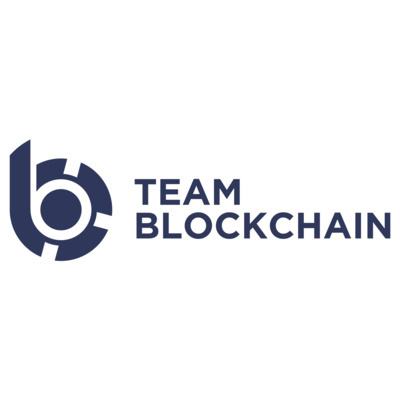
Jonny Fry / James Tylee of Digital Bytes by Team Blockchain on Cyber.FM 22nd December 2021
Jonny Fry is joined by James Tylee to discuss this weeks Digital Bytes newsletter featuring special guest: Peter Habermacher, CEO, Aaro Capital
We Discuss:
Blockchain technology is increasingly impacting on businesses - there has been a growing clamour for businesses to use Blockchain technology and the digital assets that this technology can create. The adoption and different means in which blockchains can be utilised by companies is increasingly expanding across a variety of industries and will undoubtedly have an impact on the way that companies interact with their suppliers, shareholders and customers.
Blockchain technology targets the bank that settles $6trillion a day in FX - HSBC’s Blockchain-powered Foreign Exchange (FX) settlement enables FX trades to be carried out more transparently, with less risk and with lower costs than the current Continuous Linked Settlement (CLS) bank solution. Stronger compliance, less risk and lower costs - surely that will gain the attention of regulators, compliance officers and board directors.
As inflationary pressures rise, where will investors’ capital move to? - inflationary pressures are rising and, due to the recent worries regarding the Omicron variant, interest rates are not being increased whereby adding to additional inflationary concerns. Equity markets have risen now for almost 9.5 years so where will investors go as interest rates are increased, as there is now an even wider range of alternative asset for investors to consider? Do your homework now so, as and when equity and bond prices have a pullback, you will know if you wish to diversify your investments into the plethora of new assets on offer.
Global debt spirals whilst bond markets undergo transformation - according to the IMF, the amount of global debt rose to over $225trillion and this could prove to be problematic as interest rates rise. However, we are seeing real innovation in the way that debt instruments are being created and issued using Blockchain technology, which offers the potential for small and medium sized firms to consider creating their own smaller bond issues thus allowing them access to a new pool of capital to help finance their firms.
Alternative Investments and Tokenisation - investing in alternative assets is usually reserved for high-net-worth individuals and institutional investors. It is also often a slow and paper-intensive process, one that is out of date relative to the new retail investing apps. In this note, we discuss how Blockchain technology can enable a more efficient and accessible process through tokenisation. Tokens are digital representations of assets which are issued and traded within a distributed ledger. They allow for faster and cheaper transactions, greater liquidity and access to a wider base of investors, as well as potentially greater transparency for managers, clients and regulators.
May we take this opportunity to wish you all best wishes for the festive season and hope that you all stay safe and enjoy a break with friends and your families.
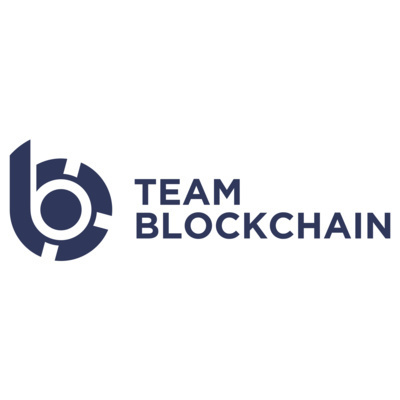
Jonny Fry / James Tylee of Digital Bytes by Team Blockchain on Cyber.FM 15th December 2021
Jonny Fry is joined by James Tylee to discuss this weeks Digital Bytes newsletter featuring special guest: Nicholas Fitzpatrick, partner at DLA Piper.
We Discuss:
WhatsApp to offer digital payments - so is Facebook to finally get its way? - WhatsApp is to trial offering a cohort of its 2.5 billion users the ability to send, not just messages, but also to make digital payments. This potentially realises an ambition Facebook laid bare when it first revealed its digital currency ambitions three years ago. On closer inspection, if it is safer to create and issue a cash-backed stablecoin (as opposed to depositing cash in a bank) what happens to those banks relying on fractional banking, and who takes on the role of the commercial lender?
Metaverse and self-sovereign identity (SSI): new superpower? - the metaverse is a new buzzword ‘doing the rounds’, but what does it actually mean and how is it going to change everyday life? Besides an exciting aspect of virtual reality (VR) that everybody could at least vaguely relate to there are many other interesting developments, particularly around the digital economy and trusted interactions enabled through digital and self-sovereign identity (SSI). We explore the symbiosis of the two hottest technologies - metaverse and self-sovereign identity - and how they fit within Web 3.0.
Crypto regulation varies in each jurisdiction - the rules and regulations for cryptocurrencies vary depending on the jurisdiction in which they are being promoted. There appears to be a real lack of agreement or coordination between regulators worldwide, apart from a significant number of countries expressing concern that those wishing to use cryptos cannot do so for illegal purposes - hence the need for KYC and AML verification.
NFT in sports: manna from Heaven? - as the sports world has sought to recover from the financial consequences of COVID-19, two themes have emerged. First, the paramount need to secure sources of revenue and second, an urge to accelerate the adoption of technologies which offer new ways of engaging with fans in a way which is, at least partially, insulated from the vagaries of global pandemics. And so, news that the National Basketball Association (NBA- as it so often is) was a successful early adopter of NFT collectibles and is (in partnership with Dapper Labs) generating significant numbers from its early Top Shots drops, has been welcomed like the promise of ‘manna from Heaven’ across the sports industry.

Jonny Fry / James Tylee of Digital Bytes by Team Blockchain on Cyber.FM 10th December 2021
Jonny Fry is joined by James Tylee to discuss this weeks Digital Bytes newsletter featuring special guest: Timo Lehes, co-founder Swarm Markets.
We Discuss:
Blockchain technology brings transparency to reveal companies’ ESG status - there is growing pressure on companies to be able to prove their ESG credentials and the provenance of the goods and services they are selling. Blockchain technology is able to help consumers and shareholders to have greater information about an organisation’s ESG status and then decide, accordingly, whether to buy or not.
NFTs, The Death of Mortgages - NFTs enable partial purchasing of property equity and the attendant rights. Rights previously bundled, such as boundary, air, view, mineral and water rights can be parcelled off as individual rights and traded as individual titles and used in daily commerce. This allows the most attractive rights to some users to be acquired individually without the need to acquire all the property rights. NFTs open up a new world for rights not previously seen.
Alternative assets are increasingly popular for investors - the amount of capital that is being allocated to alternative investments has been expanding and is predicted to grow further as we see digital assets being created. Traditional assets such as equities, bonds, commodities and even currencies and alternative assets are increasingly being made available via a digital wrapper to be traded on new digital exchanges. This is going to assist in making alternative assets more accessible for a new cohort of investors who have, traditionally, not been able to access them.
How DeFi will enable participants to reimagine financial markets? - In recent years, the emergence of Fintechs has sought to democratise financial services and give some level of control back to the user. Through elements such as self-custody, DeFi will take this one step further. Giving people the power to digitise their assets and move them freely across the DeFi ecosystem (combining them with other assets to form novel trading pairs) will enable a new financial market to be reimagined along customer-centric lines. However, this will only be made possible once we see DeFi become regulated, allowing certain participants and collateral to move into the ecosystem, for the first time.
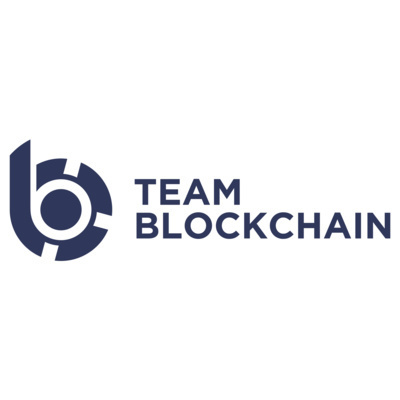
Jonny Fry / James Tylee of Digital Bytes by Team Blockchain on Cyber.FM 1st December 2021
Jonny Fry is joined by James Tylee to discuss this weeks Digital Bytes newsletter featuring special guest: Mircea Mihaescu, Coinfirm.
Welcome to this week's edition of Digital Bytes where we discuss:
Finally, legal clarification for smart contracts - smart contracts are seen to be a key reason for using Blockchain technology since they enable greater efficiency and automation of processes and transactions. The UK’s Law Commission has confirmed that existing laws in England and Wales are able to accommodate and be applied to smart legal contracts, thus removing the existing legal uncertainty of using these digitally programmable instructions. Will this result in greater adoption of smart contracts and Blockchain technology as a whole?
Blockchain in the property sector - according to Savills, the value of residential real estate s is $258trillion and $32trillion for commercial property, yet still relies on paper- based analogue systems and processes. Blockchain technology offers the promise of radically improving the efficiency of property transactions, but there are challenges to be faced to make Blockchain-powered platforms the dominant way on which to buy and sell real estate.
Metaverses: who will govern the new digital reality? - Since late October, when Facebook announced its change of name to Meta, the term "metaverse" has been increasingly present in our vocabulary. In its current meaning, metaverse generally refers to the concept of a highly immersive virtual world where people gather to socialise, play, and work. Thanks to new technologies, these virtual environments will become increasingly immersive, allowing us to expand our reality. Therefore, it is not difficult to imagine that we will soon be spending long periods of time in these new virtual worlds. It is precisely for this reason that we must spend some time reflecting on the legislation and democracy of these new worlds: who will govern the new digital reality: big corporations, or citizens?
A Five-step Framework for Addressing Gaps and Inconsistencies of Digital Currency Compliance Laws - the global user base of cryptocurrencies increased by nearly 190 percent between 2018 and 2020. The future of digital currencies looks bright with cryptocurrencies and blockchain tech as a whole slowly gaining acceptance in wider financial markets. However, there seems to be few nations with a comprehensive legal basis for the existence of different types of crypto assets. How about we explore the gaps and inconsistencies that we, as a community, need to address and resolve?
Download the Cyber.FM app at https://cyber.fm

Jonny Fry / James Tylee of Digital Bytes by Team Blockchain on Cyber.FM 26th November 2021 (Happy Thanksgiving USA!)
Jonny Fry is joined by James Tylee to discuss this weeks Digital Bytes newsletter featuring special guest: Grant Blaisdell, CEO, Copernic.
We Discuss:
Will the rise of bonds issued on blockchains lead to coupons being paid using stablecoins? – increasingly, banks and issuers have launched debt instruments using Blockchain technology to create digital bonds. Will this mean we could see bonds income ‘coupons’ being paid with digital currencies as opposed to fiat?
Can the history of money portend as to the future role of Digital Currencies? - central bankers are scrambling to understand the pros and cons of digital currencies as some of their peers launch CBDCs. What lessons can we draw from history? The US$ was once issued by thousands of organisations and we should also not forget the rise and fall of five world reserve currencies since 1450.
SSI: self-sovereign identity explained - self-sovereign identity (SSI) has seen a rapid adoption within finance, interestingly with both Centralised Finance (CeFi) and Decentralised Finance (DeFi). In the context of DeFi, it is often referred to as SSI’s enabler. Beyond finance, SSI’s application has been growing too - spanning travel, e-commerce, supply chains, crypto, and other sectors. What remains a stumbling block for many is understanding what SSI is. What is so magical about it that it can fill in so many cracks across industries?
Investments into crypto funds accelerates - the amount of capital being invested in funds (which, in turn, are buying cryptocurrencies) is growing as institutions and wealthy sophisticated investors commit increasing sums of capital to this asset class.
For the first time, cryptos will soon let you own assets in space - two markets which stand to be the builders of a new class of wealth are cryptos and space. But it's the collision of the two that stands to have the most significant potential, not only to build new wealth but to significantly improve day-to-day life and activities on earth. This collision is happening now, and for the first time the general market will be able to buy and own pieces of space as space assets. The average person will be able to participate financially and benefit from the growth of the space economy. The time for you to own a piece of space is now, and crypto stands as the foundation for it.

Jonny Fry / James Tylee of Digital Bytes by Team Blockchain on Cyber.FM 18th November 2021
Jonny Fry is joined by James Tylee to discuss this weeks Digital Bytes newsletter featuring special guest: Andrew Delves, Senior Relationship Manager: Fintech, at ClearBank.
We discuss:
How digital currencies can generate billions of £, $, €, Yen, etc - in the UK, stamp duty on equity trading has exceeded predictions as office workers stay at home and turn into day traders. So, why not levy a 0.5% stamp duty/transaction tax on all crypto trading globally? It could potentially raise over $600billion in tax p.a. Now Mr Taxman, has that got your attention?
DeFi addresses some risks, but potentially creates new ones too - Decentralised Finance is set to disrupt the financial services sector as it ushers-in more transparency - potentially with a return to the spread of both risks and rewards to those involved (in a similar way the mutual insurance firms operated their with ‘profits funds’). Markets will need protection from not just new opportunities, but new risks - both of which invariably come with change.
The infrastructure required by blockchain-powered platforms is unfolding - Infrastructure challenges are being addressed and we are increasingly seeing corporations and governments becoming more engaged with Blockchains and Digital Assets. As they do, we are gaining greater clarity both as to the pros and cons of using this technology and new asset class and the work still required.
Banks and digital assets: from naysayers to pivotal partners - digital assets, Blockchain
technology and cryptocurrency are all moving towards being a part of the mainstream financial system in the UK. With many fintech players introducing the technology into their offerings, it’s clear that digital assets are here to stay. However, to be truly immersed into the mainstream financial system and gain trust and support from consumers, fintech players who are championing digital assets need support from the fundamental gatekeepers of financial infrastructure: traditional banks. Here, Andrew Delves, from ClearBank, explores what this type of collaboration could look like.
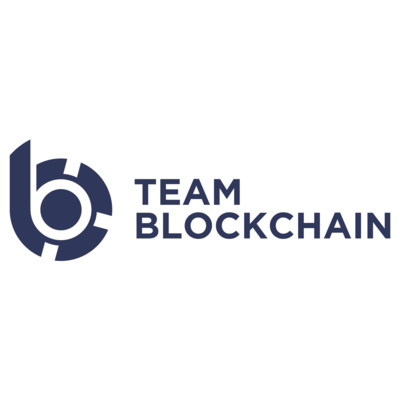
Jonny Fry / James Tylee of Digital Bytes by Team Blockchain on Cyber.FM 12th November 2021
Jonny Fry is joined by James Tylee to discuss this weeks Digital Bytes newsletter featuring special guests: Sean Kiernan CEO of Greengage and Big Innovation Centre’s Birgitte Andersen.
We discuss:
Some of the challenges facing NFTs as they grow in popularity - NFTs have captured many an investor’s attention with the volume of NFTs being traded rising exponentially. We look at some of the biggest NFT platforms and a new one focused on social media influencers, bearing in mind that NFTs face a number of potential regulatory challenges as well as the need to ensure that the seller of the NFT is the actual owner.
ETH gas prices climb again - transactions (gas) fees on the Ethereum Blockchain have increased by over 2,300% since June 2020 as the number of decentralised applications (daaps) and people using Ethereum continues to rise. However, as we see increasing calls for stablecoins, NFT exchanges and DeFi platforms to be regulated, what risk warnings or even restrictions will be implemented to draw attention to the wild swings in gas prices, or will the new Ethereum upgrade finally reduce and control the cost of gas?
The challenges of digital rights for digital assets - as our economies become ever more digitised, we face the increasing challenge of protecting our digital assets. Legislation was not built to accommodate the volume of the nature of digital assets - such as NFTs, posts on social media and even our spending habits and preferences, many of which the Silicon Valley giants have capitalised on so effectively. Technology can help but it, too, can have unintended consequences if the wrong information is stored on an immutable Blockchain and then cannot be amended to reflect the actual facts.
How is the UK blockchain landscape faring today in the post-Brexit, post-Covid world? - on the 3rd of November, a group of organisations launched the results of a major new mapping exercise to examine the current state of the industry. Greengage, Deep Knowledge Analytics and the Big Innovation Centre have published a landmark piece of research in partnership with the All-Party Parliamentary Group on Blockchain which gives a comprehensive overview of the state of the UK industry in 2021, including a mind map of the leading companies, investors, influencers, hubs and government agencies.

Jonny Fry / James Tylee of Digital Bytes by Team Blockchain on Cyber.FM 5th November 2021
Jonny Fry is joined by James Tylee to discuss this weeks Digital Bytes newsletter featuring special guest: Christopher Luck, Partner at CMS Cameron McKenna Nabarro Olswang LLP.
We discuss:
Mastercard set to make access to cryptos easier - Mastercard will make it possible for the millions of merchants and 20,000+ financial institutions which use and accept Mastercard to use cryptocurrencies. This is more evidence of how the payment platforms are embracing change and digital asset adoption, all the while creating the infrastructure to enable CBDCs to be used globally.
How long before we see a Facebook digital currency? - Facebook has been looking to issue a digital currency for over three years. As its CEO, Zuckerberg, extols the potential of NFTs, AR, VR and of the evolving on-line metaverse, are we to see Facebook’s plans finally come to fruition now that it is rebranding its holding company to Meta?
House prices rise, as do inflationary pressures: is Blockchain technology set to impact real estate? - there is growing evidence that inflation rates are rising, together with the price of houses also increasing in many parts of the world. The use of Blockchain technology, and in particular tokenisation of property, has been widely touted as the next ‘big thing’ to impact the real estate market; yet there have been only a few successful examples to date.
FoMo and greed: two powerful drivers of crypto adoption - there is nothing like seeing the price of an asset appreciating quickly to grab the attention and so spark the ‘Fear of Missing Out’ or the emotion of greed to galvanise investors to act. Whilst there have been some spectacular gains in the price of cryptos, traditional equity and bond markets have also significantly risen. Is now the time for caution?
Tokenisation of Funds: we know where we are going, but how and at what speed? - the funds sector represents a significant opportunity for the use of digital technology and tokenisation. There is, however, much to consider from technology to legal and regulatory themes. A recent CMS series of webinars with industry speakers and participants looked at these and how the topic is evolving across different countries at different speeds.
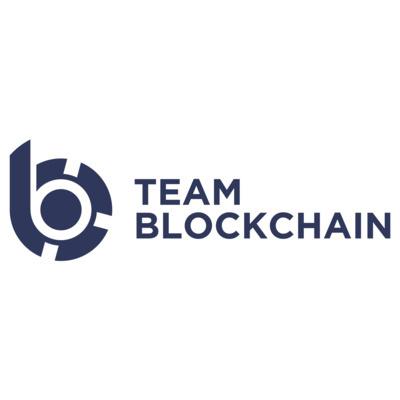
Jonny Fry / James Tylee of Digital Bytes by Team Blockchain on Cyber.FM 29th October 2021
Jonny Fry is joined by James Tylee to discuss this weeks Digital Bytes newsletter featuring special guests: Shashank Krishna, Partner, and Sarah Beaumont, Associate, at Baker Botts L.L.P - a leading international energy, technology and life sciences law firm.
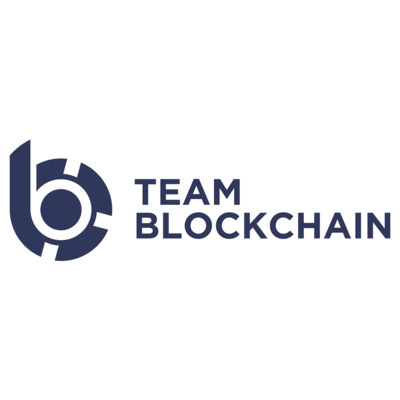
Digital Bytes by Team Blockchain on Cyber.FM 20th October 2021
Jonny Fry is joined by James Tylee to discuss this weeks Digital Bytes newsletter featuring special guest: Ben Davis Head of Superscript’s International Book of Business and its emerging technology practice.
This week touches on the differences between CeFi and Defi for Insurance and gives you some practical examples of why understanding risk management could help keep your company around long enough to realize the future you're working so hard to achieve.
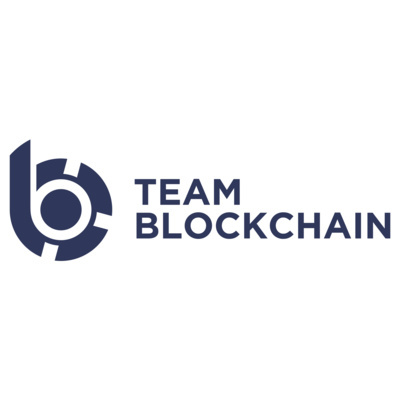
Digital Bytes by Team Blockchain on Cyber.FM
Jonny Fry is joined by James Tylee to discuss this weeks Digital Bytes newsletter featuring special guest: Tanya Matveeva, CEO of KAMNI Chain.
Tanya discusses Blockchain in the commodity mining sector: taking stock and looking ahead - the use of Blockchain technology in the commodity mining sector has been slow to date. However, as there is increasing demand for commodity miners to be able to demonstrate their ESG credentials, commodity mining firms are increasingly turning to engage with blockchain-powered platforms. No doubt, the transformative potential of Blockchain technology will be realized via gradual adoption throughout the mining industry.
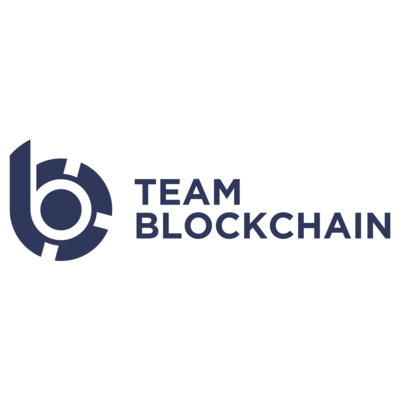
Crossover Event: Digital Bytes by Team Blockchain w/ Jonny Fry
Digital Bytes enters a new era as we discuss Covid-19 vaccination and or recent test results on a Blockchain, a selection of different initiatives as well as "Play to Earn" and how playing on-line games can pay your bills!
Most importantly, Jonny Fry introduces James Tylee of CyberFM Radio, who hosts Blockchain Radio. We discuss the future of Blockchain Radio and a special remembrance in honor of our dear friend Pierre Bourque.

CyberFM / Blockchain Radio Crossover Conversations Show
Time now for #Crossover with James Tylee @jtcyberfm & @PierreBourque
as they talk Crypto, Hot Potatoes, and a Flock Of Seagulls
--->>> https://cyber.fm

Special: "Anything Goes - The Waite Is Over" for John Waite's New Album "Wooden Heart"
This is a Crossover Event at Cyber.FM and West Loves East Radio where Beth and James get to speak candidly with John Waite! A tremendous amount of fun with an Icon who is still clearly "just a friend at the table."
An Icon so big, he requires TWO Radio Networks and a new album with THREE Volumes, Wooden Heart, available at https://johnwaiteworldwide.com
Tune in wherever you enjoy podcasts, but more importantly download the Cyber.FM app at https://app.cyberfmradio.com to listen whenever you like and not only catch John's historical releases, but also all of his new!

Invalid Invalid Statement - The Paycheck Fairness Act Is NOT For ALL Women!
99 Days ago, I debuted the "Right Side Of Disabilities" podcast and I made a promise to all... during this Administration's tenure, you will see ZERO progressive for Disabled Americans. Its been that way since 1938 and continues to this day. Specifically blaming the actions of the Democratic Party.
99 Days later, as President Joseph Biden speaks to our Nation and Congress, he proved me correct. Using his own words, we see how this party continues to oppress and remove the civil rights and liberties of Disabled Americans.
I invite and beg independent fact checkers to debate what I cover. Everything spoken on this podcast is factual. This podcast is NOT for the faint of heart.

VibraVid / BeatzCoin is a disgrace to the Music Industry & Crypto: Saturday Night Fight Mar 20, 2021
VibraVid / BeatzCoin is a disgrace to the Music Industry & Crypto. They are robbing the FIVE total artists that are on their platform and robbing Advertisers.
We then steal the song because they offer NO PROTECTION for the Indie Artists in which case, we ask, "What exactly does your blockchain product do for Musicians?"

CyberFM / Blockchain Radio Crossover Conversations Show
Time now for another episode of Crossover Conversations with James Tylee of CyberFM and Pierre Bourque of Blockchain Radio! Today we talk about a range of technology around NFT's with Blockchain, not just Ethereum, but other aspects from why do racing engines lose warranty for "tunes?" Blockchain doesn't fix that!